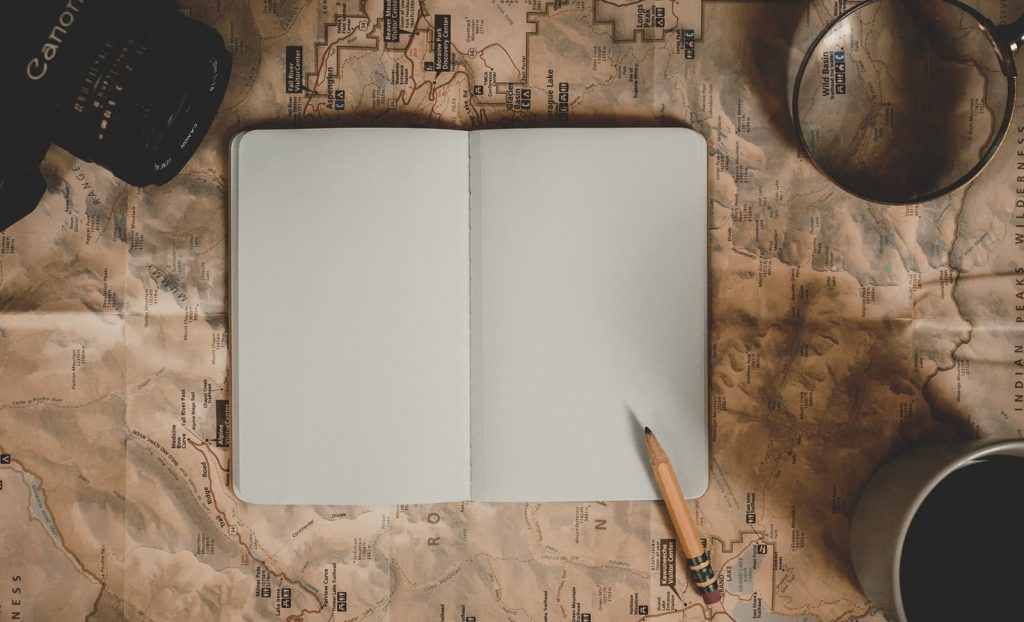We listen to the lyrics of a song. Someone sings a sorrow, a joy, any event. What exactly are we hearing? Perhaps it is about the life of the author, perhaps that of the character who appears in the lyrics or perhaps another or others. Who is who? What relationship is there between one and the other?

Let's talk a little about the Self and its role in the text of the songs.
The first person
Let's imagine a common situation when we listen to a song. The person who sings is interpreting a lyric that clearly explains that he misses a partner, someone who is no longer by his side, and is detailing details of the relationship, the things they did when they were together or the moment when one He decided to leave the other. The lyrics, the music and the voice of the person who is singing merge into one thing, even if it is only for three or four minutes, in a powerful experience that we all know, in a kind of trance, and when the song ends, it is It is difficult not to be convinced that we have witnessed a confession, a story of something completely personal, a real fragment of the life of whoever was the interpreter. Yes I know. Maybe I'm exaggerating a little but I guess you understand perfectly what I mean. And if the lyrics also include words like I, you, he or she and even some proper name, how can we not identify the story and its interpreter? It is the magic of face-to-face arts, like theater, for example. Something fake, simulated or approximate that our brains accept as true, as representative, at least, of a personal truth, of real facts or emotions. It is one of the legendary powers of songs. But, it can also lead us to a mistake, to a misunderstanding, to a fiction, and if we write songs perhaps also to self-censorship, to modesty, to shame. This phenomenon illustrates one of the greatest tricks, so to speak, of literature in general, the autobiographical element and its alternatives.
 People and characters
People and characters
The autobiographical
The fact is that we know without a doubt that someone, a specific person, wrote what we read, what we sing, in the same way that we link by default the speaker with what he says. And that certainty leads us directly to identify to one extent or another the author with the facts presented. And that identification is true, but the extent of that relationship and the fidelity between what really happened and what has been written can be diverse. If we focus on the cases in which the writer uses the first person and, in addition, is the one who narrates the story, we might think that things are clear and whatever is said or happens in the text will be directly referred to the story. real life of the author. But it may well not be the case and much or little of what is written may never have happened to him and may not have biographical veracity, so to speak. How can we know or create one type or another of text? To resolve this, literary critics and scholars distinguish between autobiographical and so-called autofiction. For a text to be considered autobiographical, it is necessary that the author, at some point, explicitly commit to it. It is the so-called reading pact between the one who writes and the one who reads. And, even if the author's memory betrays him or his own fantasy kidnaps him during writing, this pact places him in a position in which he will be explaining real facts while the reader or recipient agrees to believe them as such. This is the autobiographical pact that can be applied to diaries, memoirs or texts where fidelity to what really happened is a vital part of the artistic artifact.
 The self, the letters and the blank paper
The self, the letters and the blank paper
autofiction
But, as we have said, nothing prevents a writer of a song from starting to alter things in a text, lyric or story. To disguise or hide some small or large details, to be freely inspired or to lie with one intention or another, if you want to see it that way. If we have talked about the autobiographical pact, at the other extreme we have the novel or fictional pact where the truth is replaced by what is credible, by what could have been but was not and has been invented for an artistic purpose. It is also a pact in which whoever reads or listens accepts that game, that strategy and pretends to be facing a reality that was not. So, to locate that author or singer for what concerns us who uses the first person when writing, who tells his or her story and that of the others involved but does not guarantee at any time the complete veracity of the facts, it is invented the word and concept autofiction. This beautiful verbal construction helps us describe those texts that seem autobiographical but in which some elements, names, places or details may or may not be true and we will never be sure that they are faithfully autobiographical. Here, halfway between fiction and confession, is where we can often locate the lyrics of the songs, when the reading agreement is ambiguous and we basically believe some things such as that the one who sings is the protagonist of what he sings and other things that are sung because we simply don't quite believe them. In this ambiguity appears, although it may seem incredible, a very valuable space for those who read or listen to the song, for their active participation without losing the closeness of the first person, of the biographical, of even gossip. It also puts a song on a not so personalistic ground, not so I talk about myself and my things and you listen to them and believe them, in a situation that perhaps more people can make their own and fit better into their own shared experiences. .
 The self and its reflections You can listen to the episode of Podcast titled «The personal element«, dedicated to this topic:
The self and its reflections You can listen to the episode of Podcast titled «The personal element«, dedicated to this topic:
Conclusions
The personal is inevitable. Each participant in a communicative act contributes their experience, their understanding and even their interests to what is being discussed. A person who writes any story or any type of text, in reality, is going to leave their personal mark on it: some of their vocabulary, their syntax, their character, their everything. Even if he writes in the third person, even if he relates events that have no relationship with his life, nor with his values, nor with his hopes nor with his concerns. Much more so if we write in the first person and affirm or pretend to be the person in addition to the character in the text. But the personal element is also ourselves as listeners, as receivers and as receptacles of the story, of the emotion, of whatever happens in the song. This clarifies a few things regarding musical compositions, works of art in general, and even our daily lives. The first thing is that without receivers there is no communication, there is no work, there is practically nothing. Each of us not only receives the stimulus of the musical piece but also completes it. It is something inevitable. We are not passive listeners when listening to a song, it is impossible. Therefore, it is inevitable that each person makes their own reading of everything that comes to them and that reading, that perspective, that piece of ourselves that we add to the song is what gives it its particular and let's say definitive form for us. Therefore, the self of a song writer, the ego even, plus the self that a singer sings and our self in a certain time and place results in a specific experience that we call listening to a song. You can do the task of investigating and disassociating the writer from the singer and even from yourself, be aware that that singer's broken heart is not his or yours, but perhaps this does not matter if you are a listener enjoying it or not. of an interpretation. But hey, everyone can do what they want, of course. If we look at the matter from the side of who creates the song, the thing can result in shame for expressing your own experiences or feelings, or the feeling of being an imposter for perhaps writing stories or anything that you have not personally experienced and similar situations. . But, once we have seen this whole panorama of perspectives, personalities and other particular situations, the truth is that it does not matter much. That we value a song by the degree of truthfulness regarding the life of the author or the performers does not make much sense. A song is not an essay, nor a memoir, nor anything else unrelated to it, although it may contain a lot of these and other areas. So let's listen to songs without fear and without reluctance, they are works to communicate and express our ideas and feelings, to be shared. And let's write song lyrics the same way, without fear, without censoring ourselves just because. Let's sing from the self without further ado because, when it reaches the brain of the audience, it will be a you or a we that will have made it their own and we as composers will begin to disappear and, if we are lucky, the song will last much longer than we. One more time. Don't give it any more thought. Write your song. #mailpoet_form_3 .mailpoet_form { } #mailpoet_form_3 .mailpoet_column_with_background { padding: 10px; } #mailpoet_form_3 .mailpoet_form_column:not(:first-child) { margin-left: 20px; } #mailpoet_form_3 .mailpoet_paragraph { line-height: 20px; margin-bottom: 20px; } #mailpoet_form_3 .mailpoet_segment_label, #mailpoet_form_3 .mailpoet_text_label, #mailpoet_form_3 .mailpoet_textarea_label, #mailpoet_form_3 .mailpoet_select_label, #mailpoet_form_3 .mailpoet_radio_label, #mailpoet_form_3 .mailpoet_checkbox_label, 3 .mailpoet_list_label, #mailpoet_form_3 .mailpoet_date_label { display: block; font-weight: normal; } #mailpoet_form_3 .mailpoet_text, #mailpoet_form_3 .mailpoet_textarea, #mailpoet_form_3 .mailpoet_select, #mailpoet_form_3 .mailpoet_date_month, #mailpoet_form_3 .mailpoet_date_day, #mailpoet_form_3 .mailpoet_date_year, #mailpoet_form_3 .mailpoet_date { display :block; } #mailpoet_form_3 .mailpoet_text, #mailpoet_form_3 .mailpoet_textarea { width: 200px; } #mailpoet_form_3 .mailpoet_checkbox { } #mailpoet_form_3 .mailpoet_submit { } #mailpoet_form_3 .mailpoet_divider { } #mailpoet_form_3 .mailpoet_message { } #mailpoet_form_3 .mailpoet_form_loading { width: 30px; text-align: center; line-height: normal; } #mailpoet_form_3 .mailpoet_form_loading > span { width: 5px; height: 5px; background-color: #5b5b5b; }#mailpoet_form_3{border: 1px solid #fcb900;border-radius: 40px;text-align: center;}#mailpoet_form_3 form.mailpoet_form {padding: 20px;}#mailpoet_form_3{width: 70%;}#mailpoet_form_3 .mailpoet_message {margin : 0; padding: 0 20px;}#mailpoet_form_3 .mailpoet_paragraph.last {margin-bottom: 0} @media (max-width: 500px) {#mailpoet_form_3 {background-image: none;}} @media (min-width: 500px) { #mailpoet_form_3 .last .mailpoet_paragraph:last-child {margin-bottom: 0}} @media (max-width: 500px) {#mailpoet_form_3 .mailpoet_form_column:last-child .mailpoet_paragraph:last-child {margin-bottom: 0}} Please leave this field emptyDo you write songs or would you like to?
Email * I have read and accept the Privacy Policy With the Guide «The journey of a song» as a gift Check your inbox or spam folder to confirm your subscription.

